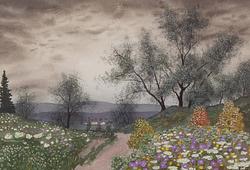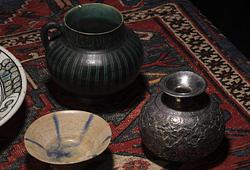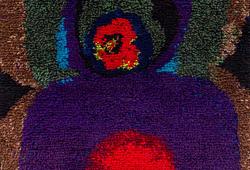Figurin, blanc de chine. Sen Qingdynasti.
Flöjtspelande gosse på oxe. Höjd 18,5 cm. Längd 19 cm.
Proveniens
From the private collection of a Swedish family in Närke. The couple has a keen interest in art and antiques and started to collect in the 1960’s, attending auctions, antique shops, and antique fairs. Always seeking additional pieces that would adorn their home and that intrigued them with its quality and history.
Litteratur
The ox has many meanings and carry a lot of symbolism in Chinese culture.
One of the myths involving the interaction of humans or divine beings and oxen, and in art depicted as a boy or man with an ox is related to a popular holiday held on the 7th day of the 7th lunar month. In Chinese mythology, there is a love story of Qi Xi (七夕 literally, "the Seventh Night"), in which Niulang (the Cow-Herd) (牛郎, Altair) and his two children (β and γ Aquilae) are separated from their mother Zhinü (the Weaver-Girl) (織女, lit. "Weaving Girl", Vega) who is on the far side of the river, the Milky Way. Niulang was very upset when he found his wife was taken back to heaven. Upset by the separation, the ox saw this happens and became a boat for Niulang to carry his children up to Heaven. The ox actually was once the god of cattle, but downgraded as he had violated the law of Heaven. Niulang once saved the ox when it was sick.
However, one day per year, on the seventh day of the seventh lunar month, magpies make a bridge so that Niu Lang and Zhi Nü can be together again for a brief encounter. This is the explanatory myth behind one of the major Chinese holiday festivals, sometimes known as "Chinese Valentines Day" or Qixi Festival - two of its many names.



















































